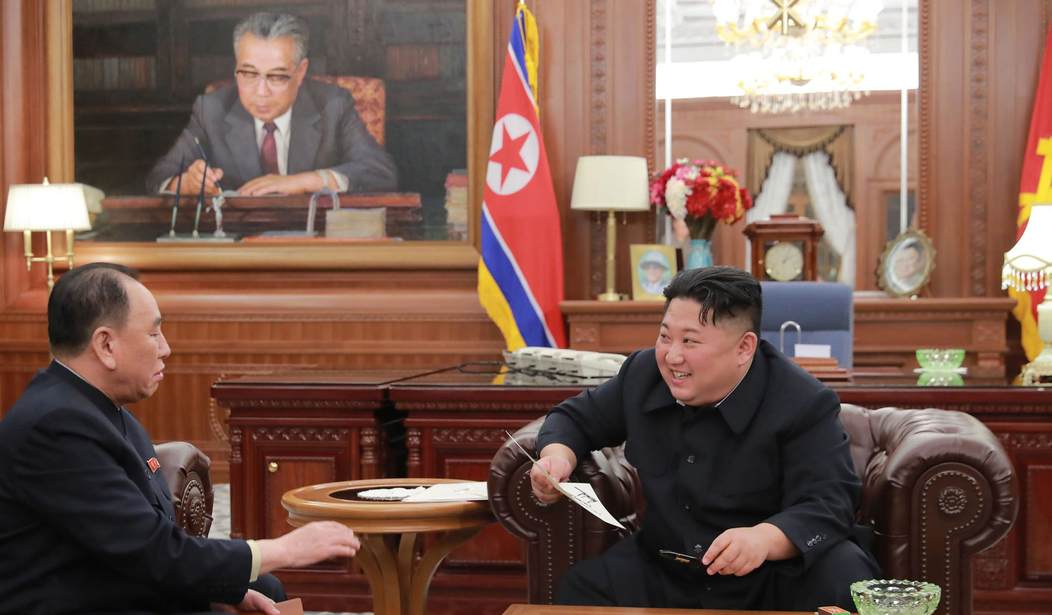WASHINGTON — President Trump announced a second summit this month with North Korean dictator Kim Jong-un the same day that news leaked of a confidential United Nations report detailing the regime hiding nukes and selling weapons.
A UN Security Council diplomat told CNN that the report, compiled by experts empaneled by UNSC resolutions and submitted to a UN sanctions committee, found “evidence of a consistent trend on the part of the DPRK to disperse its assembly, storage, and testing locations.”
North Korea “continues to defy Security Council resolutions through a massive increase in illegal ship-to-ship transfers of petroleum products and coal,” states a report summary, as “global banks and insurance companies continue to unwittingly facilitate payments and provide coverage for vessels in ever-larger, multi-million-dollar, illegal ship-to-ship transfers of petroleum products.”
The communist country is also accused of violating a UN arms embargo by selling weapons and military equipment to Libya, Sudan, and Houthi rebels in Yemen.
Later, at his State of the Union address, Trump declared that “if I had not been elected president of the United States, we would right now, in my opinion, be in a major war with North Korea with potentially millions of people killed.”
“Much work remains to be done, but my relationship with Kim Jong-un is a good one,” he added. “And Chairman Kim and I will meet again on February 27 and 28 in Vietnam.”
Director of National Intelligence Dan Coats told the Senate Intelligence Committee last week that the intelligence committee assesses North Korea “will seek to retain its WMD capabilities and is unlikely to completely give up its nuclear weapons and production capabilities because its leaders ultimately view nuclear weapons as critical to regime survival.”
“Our assessment is bolstered by our observations of some activity that is inconsistent with full denuclearization,” Coats told lawmakers. “While we assess that sanctions and exports have been effective and largely maintained, North Korea seeks to mitigate the effects of the U.S.-led pressure campaign through diplomatic engagement, counter-pressure against the sanction’s regime, and direct sanctions evasion.”
North Korea was also listed among the nations that “have all used chemical weapons over the past two years, which threatens international norms and may portend future use.”
CIA Director Gina Haspel told senators that “of course the regime is committed to developing a long-range nuclear armed missile that would pose a direct threat to the United States.”
“It is positive that we have managed to engage them in a dialogue,” she added. “They have taken some voluntary measures to close a site, dismantle a site, but ultimately the objective is to lessen that threat by getting them to declare their program and then ultimately dismantle the program.”









Join the conversation as a VIP Member